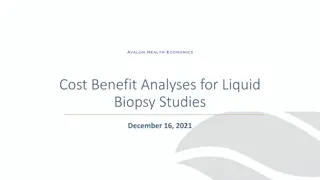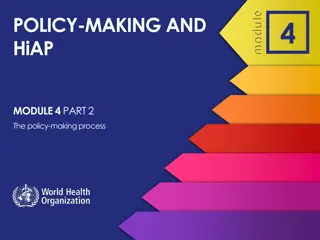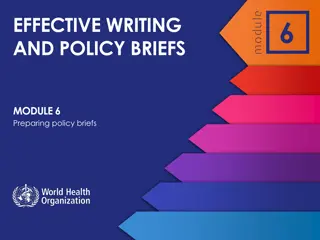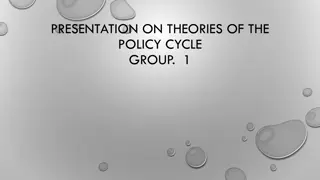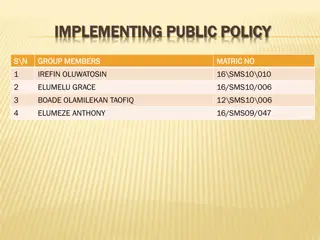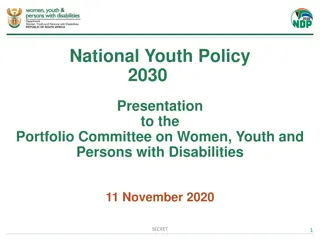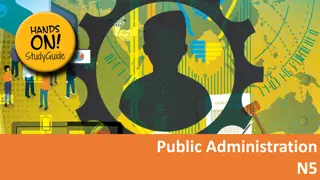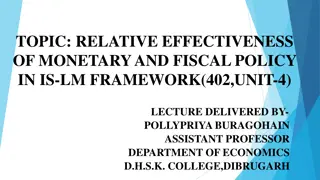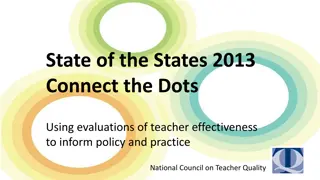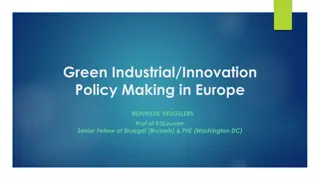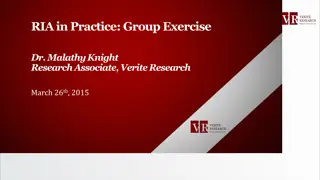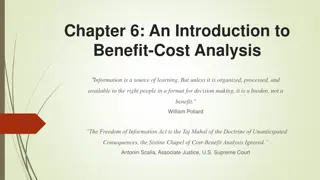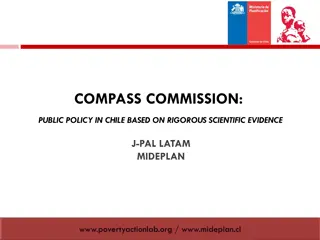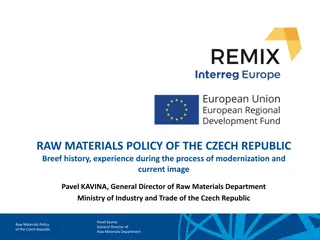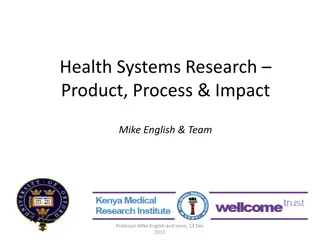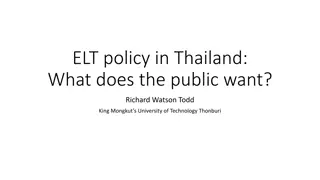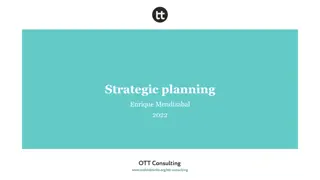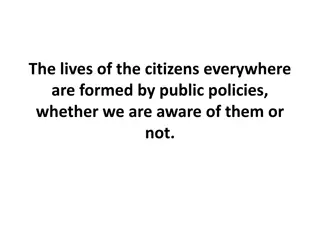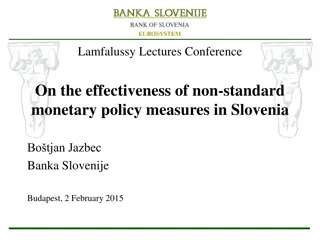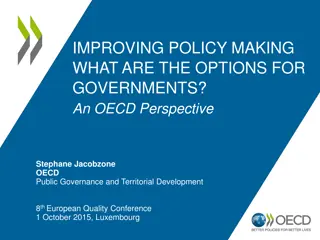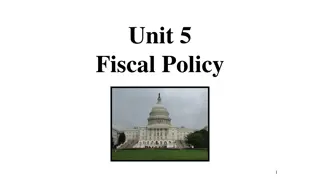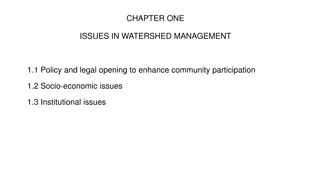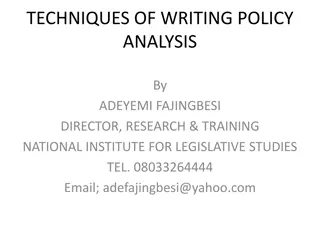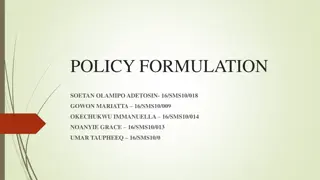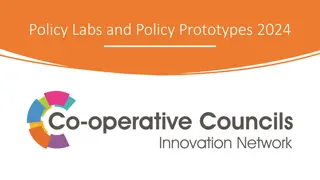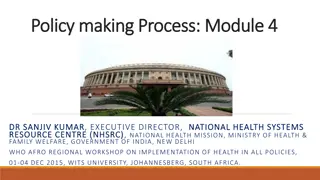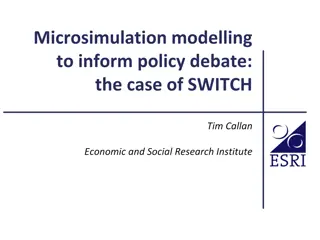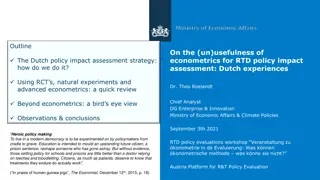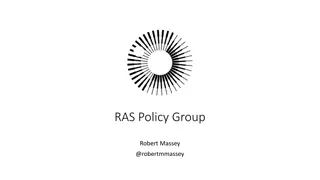Decolonising Approach to Policy Impact: Lessons for Research Culture
Engaging with policy in Global South countries and addressing power imbalances and historical complexities is crucial in policy impact and research culture. The Institute for Policy and Engagement at the University of Nottingham focuses on decolonising policies and research practices to promote equi
0 views • 19 slides
Practical Guide to Writing Policy Briefs for Research Engagement with Policy Makers
Effective communication with policy makers is essential for influencing policy decisions. This practical guide offers advice on creating high-quality policy briefs based on research evidence, providing tools and indicators to measure impact.
0 views • 15 slides
Gender Equity and Social Inclusion Policy Overview
This overview highlights the Gender Equity and Social Inclusion (GESI) Policy promoted by the Department of Personnel Management in Papua New Guinea. The policy aims to ensure fair participation of disadvantaged individuals in employment and opportunities, along with social inclusion to realize the
1 views • 18 slides
Cost-Benefit Analyses for Liquid Biopsy Studies: Understanding Health Economics and Decision Making
Health economics and decision making play a crucial role in evaluating the clinical utility and cost-effectiveness of liquid biopsies. Economic models such as cost-effectiveness analyses help in determining the incremental cost-effectiveness ratio (ICER) of interventions. Studies have shown varying
0 views • 23 slides
Overview of Policy Service Node (PSN) Architecture
The Policy Service Node (PSN) architecture consists of various key components such as Policy Administration Node (PAN), Monitoring Node (MnT), Inline Posture Node (IPN), and Multi-Function Node. These components work together to enable efficient policy management and network monitoring within a netw
1 views • 5 slides
Understanding Policy-Making Process for Health Improvement
Policy-making involves defining policy, recognizing its complex nature, identifying windows of opportunity, and framing health issues. The policy-making cycle includes stages like agenda setting, formulation, and implementation. Alignment of problems, policies, and politics is crucial for effective
1 views • 12 slides
Effective Writing and Policy Briefs: Enhancing Impact in Policy-making
A policy brief is a compelling document designed to influence decision-makers by outlining policy alternatives and courses of action. Discover the value of policy briefs, effective characteristics, and strategies for agenda setting and policy formulation in this comprehensive module.
1 views • 22 slides
Understanding Theories of the Policy Cycle in Policy Analysis
The policy cycle theory describes the evolution of policy issues from inception to evaluation, impacting scientific research and policy formulation. It outlines stages from the 1950s, influenced by Lasswell's seven-stage model, serving as a framework for organizing policy processes. Despite the line
3 views • 30 slides
Evolution of Public Policy Implementation Studies
Implementation studies focus on policy change and translating policies into action. These studies emerged in the 1970s in the United States, with different generations highlighting the challenges and approaches to policy implementation. The evolution of top-down, bottom-up, and hybrid theories in im
1 views • 24 slides
National Youth Policy 2030 Presentation to the Portfolio Committee
The National Youth Policy 2030 presentation provides an update on the approved policy, focusing on the youthful population in South Africa and the importance of youth development. The policy aims to address past injustices and current challenges, empowering young people to drive positive change. Pas
1 views • 19 slides
Understanding Public Policy-Making Process in Government
Explore the intricacies of public policy-making in government administration, focusing on the importance of providing equal access to basic services for all citizens. Delve into the nature of public policy, factors influencing policy-making, and the procedural aspects involved, including planning, o
0 views • 36 slides
Understanding Monetary Policy Effectiveness in the IS-LM Framework
The relative effectiveness of monetary policy in influencing investment, employment, output, and income depends on the shape of the LM curve and the IS curve. A steeper LM curve signifies higher effectiveness as it indicates less interest elastic demand for money, resulting in significant changes in
0 views • 24 slides
Connecting Teacher Effectiveness Evaluations to Policy and Practice in Education
Explore the State of the States 2013 report on using teacher effectiveness evaluations to inform education policy and practice. The report highlights the structure of teacher evaluation systems, state requirements for teacher observations, additional teacher evaluation policies, and important lesson
1 views • 10 slides
Green Industrial Innovation Policy Making in Europe by Reinilde Veugelers
Shifting economies towards green industrial innovation in Europe is a significant transformation that requires reconciling various objectives like decarbonization, economic growth, job creation, and global competitiveness. The role of innovation in green industrial policy is crucial for delivering n
2 views • 13 slides
Challenges in Policy Implementation and Lessons Learned
The content discusses the challenges faced in policy implementation, focusing on the gap between policy design and execution. It highlights key steps in policy-making, reasons for implementation failures, and factors influencing successful policy outcomes. Examples from Zambia's National Science and
0 views • 14 slides
Unpacking the RIA Process for Effective Policy Implementation
Delve deeper into the RIA process to understand its technical capacity and policy implications. This group exercise focuses on setting clear objectives, analyzing key policy issues, and creating a mock RIA process template tailored to the Indian context. Participants explore real-world problem-solvi
0 views • 14 slides
Overview of Benefit-Cost Analysis in Policy Decision Making
This chapter delves into benefit-cost analysis as an essential tool in policy evaluation. It outlines the steps involved in conducting a benefit-cost analysis, emphasizes the significance of defining and quantifying policy problems, and highlights the importance of identifying the seriousness of soc
0 views • 40 slides
Compass Commission: Public Policy in Chile Based on Rigorous Scientific Evidence
The Compass Commission, initiated by the Ministry of Planning of Chile in collaboration with J-PAL, aimed to identify social policy challenges in Chile and propose innovative public policies for evaluation through randomized control trials. The initiative involved academic members, international and
0 views • 10 slides
Implementation of Cell Phone Policy to Improve English Grades at Richwoods High School
Implementation of a cell phone policy at Richwoods High School was driven by the need to enhance English grades and academic performance. The policy aims to reduce distractions and disruptions caused by non-academic cell phone use in classrooms. Results from previous semesters showed significant imp
0 views • 9 slides
Raw Materials Policy of the Czech Republic: History, Modernization, and Challenges
The Raw Materials Policy of the Czech Republic has undergone significant changes and challenges throughout its history. From the approval of the previous policy in 1999 to the recent modernization efforts in 2015, political and environmental factors have played a crucial role in shaping the current
0 views • 13 slides
Impact of Health Systems Research on Policy and Practice Change
Health Systems Research led by Professor Mike English and team focuses on achieving direct and indirect outputs, including capacity building and policy influence to drive policy and practice change. The research aims to explore the effects, mechanisms, cost-effectiveness, and factors affecting inter
0 views • 16 slides
Analysis of ELT Policy in Thailand: Public Opinion and Policy Shifts
The study explores the evolution of English Language Teaching (ELT) policies in Thailand based on public preferences, governmental decisions, and international influences. It delves into the implications of knee-jerk policy reactions, the need for sustainable policy-making practices, and the importa
0 views • 21 slides
Theories and Strategies for Effective Policy Change
Explore the intricacies of strategic planning, outcome mapping, change theories, policy windows, and more in the realm of policy entrepreneurship and advocacy. Learn about key concepts such as large leaps theory, policy streams theory, and how think tanks can influence policy decision-making process
0 views • 43 slides
Life Insurance Policy Details - How It Works, Plan Specifications, Benefits, and More
This detailed document provides information about a life insurance policy, including premium payment options, sum assured details, policy benefits in case of death, maturity benefits, plan features, waiting periods, and more. It outlines the policy specifications, age limits, premium payment terms,
0 views • 9 slides
Morality in UK Drug Policy: Policy Constellations Analysis
Morality plays a significant role in shaping drug policy in the UK, as revealed by the research conducted by Professor Alex Stevens at the University of Kent. The study investigates the moral commitments underlying different policy positions in UK drug policy debates, highlighting five ethico-politi
0 views • 19 slides
Evolution of Public Policy: From Seeds Sown in 1940s to Academic Discipline in Social Science
The lives of citizens are shaped by public policies, often unnoticed. The analysis of current public policy in America carries a unique 20th-century essence. Beginning in the 1940s, these policy seeds have profoundly influenced government and academic institutions. By the early 1950s, public policy
0 views • 6 slides
Institutional Effectiveness and Assessment at B-CU
Jennifer Dash, Director of Institutional Assessment, and Dorian Hooks, Institutional Assessment Coordinator at B-CU, lead the efforts in understanding institutional effectiveness and assessment. Capacity building, creating a common vision, and a framework for institutional effectiveness are highligh
0 views • 35 slides
Industrial Policy: The Old and The New - Insights by Dani Rodrik
Industrial policy, as presented by Dani Rodrik in May 2019, emphasizes the importance of empirical work, the differences between old and new policies, and the targets industrial policy should focus on. The theoretical arguments for industrial policy highlight market imperfections, learning spillover
0 views • 26 slides
Challenges and Solutions in Implementing Non-Standard Monetary Policies in Slovenia
The decoupling of real and financial cycles in Slovenia, attributed to a balance-sheet recession and unsustainable debt-financed growth, poses challenges for monetary policy effectiveness. Credit decline persists despite economic growth, hindered by risk-averse banks and limited market for alternati
0 views • 14 slides
Enhancing Policy Making: Options for Governments - An OECD Perspective
Various tools and approaches are discussed to improve policy making, including foresight, cost-benefit analysis, and regulatory tools. The changing context of policy challenges is highlighted, along with the OECD policy toolkit's modular approach. Strategies like talking to leaders, engaging stakeho
0 views • 20 slides
Updated Petty Cash Policy Guidelines
Updated Petty Cash Policy Guidelines introduced by Andrea Sexton, Associate Director of Policy and Business Process at the University Financial Policy Office in April 2016. The key changes include new recommendations on the use and balances of petty cash accounts, streamlined procedures for account
0 views • 11 slides
Understanding Government Tools for Economic Stability
The government uses fiscal and monetary policies to stabilize the economy. Fiscal policy involves Congress's actions through government spending or taxation changes, while monetary policy is driven by the Federal Reserve Bank. Discretionary fiscal policy involves new bills designed to adjust aggrega
0 views • 36 slides
Issues in Watershed Management: Policy, Legal, and Community Participation
Policy and legal frameworks play a crucial role in enhancing community participation in watershed management. Understanding policy impacts, participatory processes, and implementation strategies are key for effective management planning. Definitions of policy, its components, and what it is not are
0 views • 81 slides
Techniques of Writing Policy Analysis by Adeyemi Fajingbesi
Adeyemi Fajingbesi presents a comprehensive guide on policy analysis highlighting the nature of public problems, the importance of policy recommendations, and a step-by-step approach to conducting sound policy analysis. Learn about defining problems, setting goals, selecting and implementing policie
0 views • 13 slides
Understanding Policy Formulation: Key Concepts and Approaches
Policy formulation is a crucial step in the policy-making process, involving identifying and crafting policy alternatives to address various issues. This phase requires participants to define policy problems, develop alternatives, and select the most feasible solutions based on criteria such as feas
1 views • 12 slides
Policy Labs and Policy Prototypes 2024: How to Get Involved and Submit Bids
Explore opportunities to contribute to Policy Labs and Policy Prototypes in 2024. Engage in collaborative projects to find innovative policy solutions for local government challenges. Learn how to submit Bids and express your interest in leading or participating in these initiatives.
0 views • 11 slides
Understanding Policy Making Process in Health Systems
Explore the stages of policy making, the role of policy champions, and opportunities for policy change in the health sector. Learn about the National Health Systems Resource Centre in India and its objectives in supporting policy development and implementation. Gain insights into the frameworks, div
0 views • 22 slides
Microsimulation Modelling to Inform Policy Debate: The Case of SWITCH
This presentation discusses the usage of the SWITCH microsimulation model to inform policy debates by simulating the impact of tax and welfare policy reforms on household incomes and work incentives. It covers the areas investigated using SWITCH, selected users of SWITCH research, and the role of SW
0 views • 21 slides
Dutch Experiences with Econometrics in RTD Policy Impact Assessment
Dutch policy impact assessment relies on a mix of RCTs, natural experiments, and advanced econometrics to evaluate the effectiveness of interventions. Dr. Theo Roelandt, Chief Analyst at the Ministry of Economic Affairs & Climate Policies, emphasizes the importance of evidence-based policymaking in
0 views • 16 slides
RAS Policy Group Overview and Work Plan
The RAS Policy Group, led by Robert Massey, consists of RAS Fellows with a focus on public affairs in astronomy, space science, and geophysics. The group advises on policy matters, including megaconstellations, and collaborates with key organizations. Their 2020 work plan includes budget considerati
0 views • 4 slides



